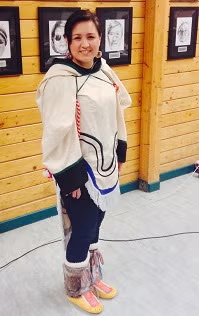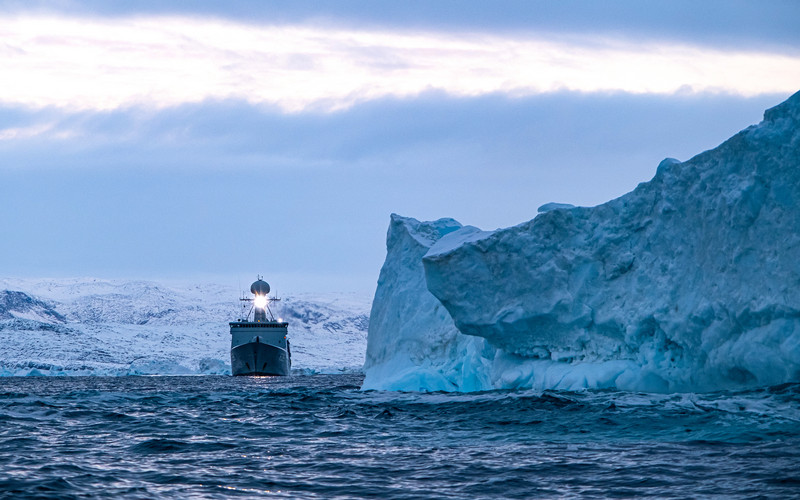Cooperation between the Greenlandic Inuit and the other indigenous peoples of the Arctic
Aili Limakka Laue, a representative of the indigenous people of Greenland and an active defender of the rights of indigenous people, spoke at the the 6th International Arctic Forum, The Arctic: Territory of Dialogue held in Murmansk (Russia) from March 26 to 27, 2025. In her speech, she talked about the colonization process of Greenland and emphasized the importance of cross-border cooperation between the peoples of the Arctic.

“Decolonization is a process, not a one-time event,” Laue said, noting that despite gaining autonomy and self-government, Greenland still retains its colonial structure. She emphasized the need to restore the mother tongue, tradition and complete independence not only politically, but also culturally and economically.
In her speech, Laue paid special attention to Greenland’s economic difficulties, especially its dependence on Denmark’s annual subsidies. She also pointed out the growing geopolitical interest in the region. In 2019, the US government led by Donald Trump proposed to purchase Greenland, which is an example of how world powers continue to regard the Arctic as a strategic resource.
An important topic of the report is the development of cooperation between the indigenous peoples of the Arctic, Greenland, Canada, Alaska, Russia and the Nordic countries. Laue put forward specific initiatives to the Russian side: the establishment of a trade network operated by indigenous peoples, the development of cultural and language exchanges, and the idea of promoting free movement between Arctic territories without being restricted by national borders.
“The colonial boundaries cannot determine who we can cooperate with, trade with or learn from,” Laue said. “It’s time to create interaction mechanisms based on our values and needs.”
Her speech received a wide range of responses from Forum participants, including representatives of government agencies, universities and Arctic indigenous people’s organizations. The Murmansk Forum confirmed the importance of inclusive dialogue in the Arctic, in which the views of indigenous peoples and their experiences play a central role in discussing the future of the region.




